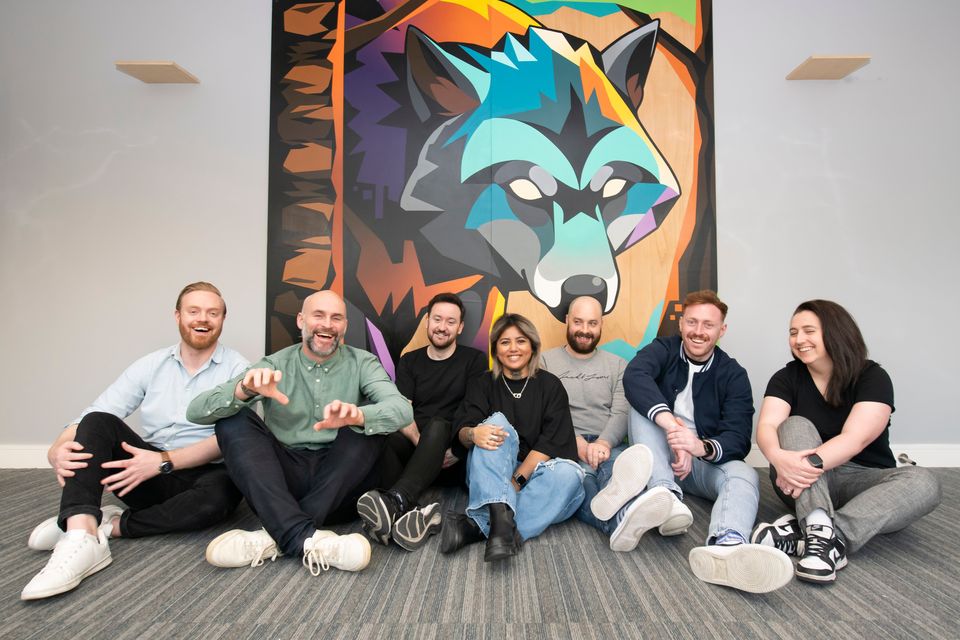Government called on to support firms who want to become employee-owned
Wolfgang Digital’s newly elected employee reps with CEO Alan Coleman. From left, Chris Bury, Coleman, Rob Beirne, Shreya Barua, Ian Booth, Stephen Murphy, and Niamh O’Doherty. Photo: Dave Keegan
The Irish ProShare Association (IPSA) has said that the move by marketing agency Wolfgang Digital to become employee-owned could start a new trend in Ireland, but only if the Government removes obstacles that make the process too complicated and expensive.
Wolfgang Digital announced last week it is moving to an employee ownership trust (EOT), a model popularised by the British retail chain John Lewis. It allows staff to share in a company’s decision-making processes and profits.
While other British companies, as well as American and Australian, have used the EOT model, Wolfgang Digital believes it is the first Irish firm to do so.
The IPSA, a non-profit and independent advocacy group which represents companies engaged in some form of employee share ownership, believes the Government needs to make it easier for businesses to make that leap.
“We’re delighted that Wolfgang Digital has made the pioneering decision to become employee-owned using an Employee Ownership Trust, “ said Marie Flynn, chair of the IPSA. “EOTs have proven an incredibly successful method of encouraging companies to become employee owned in countries such as the UK, US, Australia, and Canada.
“They could also be tremendously popular in Ireland, particularly as a business succession solution. Instead of a trade sale or a business closing, it is sold to a trust for the benefit of its employees. This benefits everyone – the selling owner or shareholders, the business, its employees, the community in which the business is based, and the wider economy.”
Ms Flynn added: “For that to happen the Government needs to provide guidance on the financing of EOTs and pass legislation to remove tax obstacles that make them overly complicated and expensive for both the seller and employees of the company.”
According to figures compiled by the IPSA, there are more than 1,600 employee-owned companies in the UK, almost all created in the decade since EOT legislation was introduced.
EOTs in the UK benefit from certain tax advantages including an exemption of Capital Gains Tax for individual shareholders when a controlling interest in a company is sold to staff. There is also an inheritance tax exemption, and an income tax exemption of £3,600 (€4,199) per individual per tax year on certain bonuses issued to all employees.
Ms Flynn added: “In Ireland, EOTs offer no tax incentives for business owners or employees and in fact the tax framework works as a significant disincentive due to the penal way in which the Irish tax legislation works, which means that often higher tax rates are paid by sellers/employees as a result. That needs to change if the Government wants to pave the way for a vibrant new era of employee-owned businesses in Ireland.”
Join the Irish Independent WhatsApp channel
Stay up to date with all the latest news















